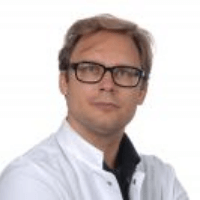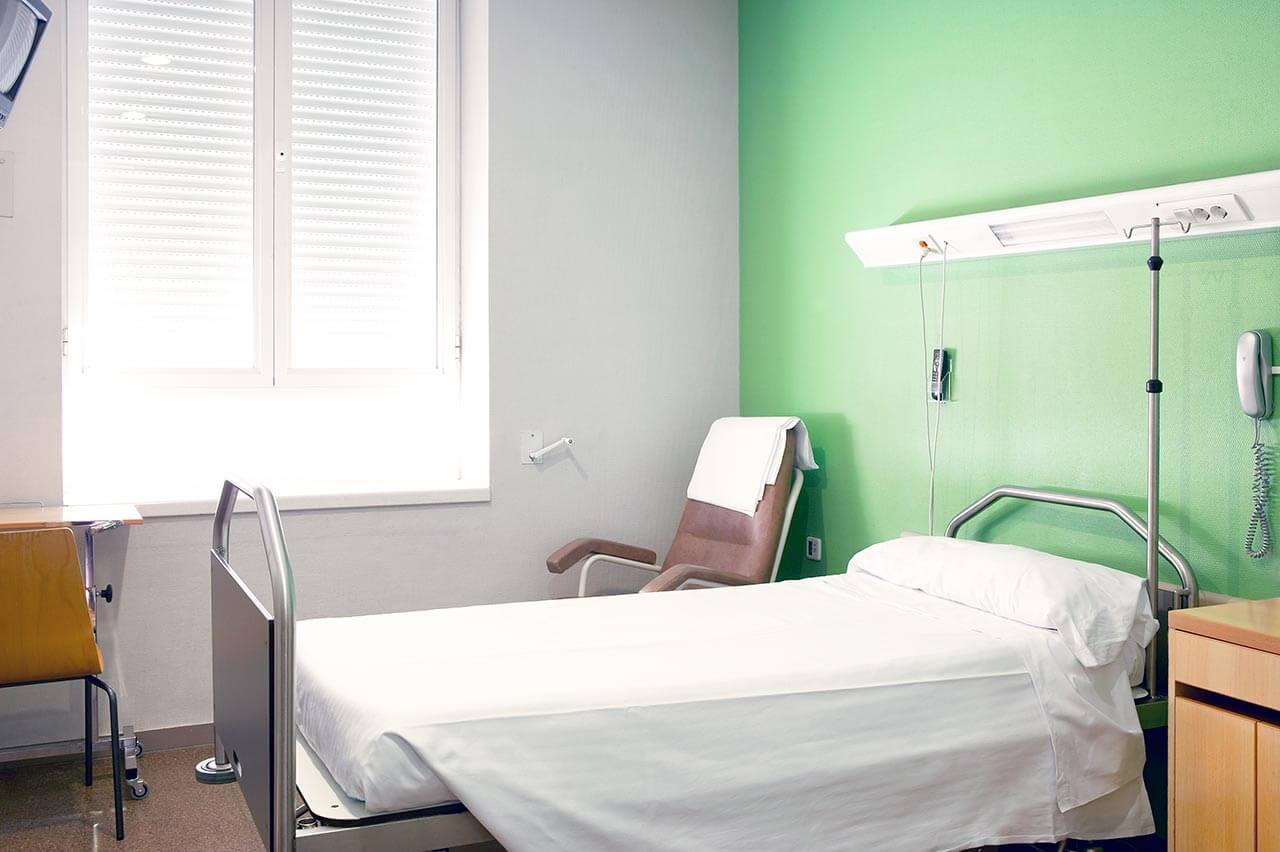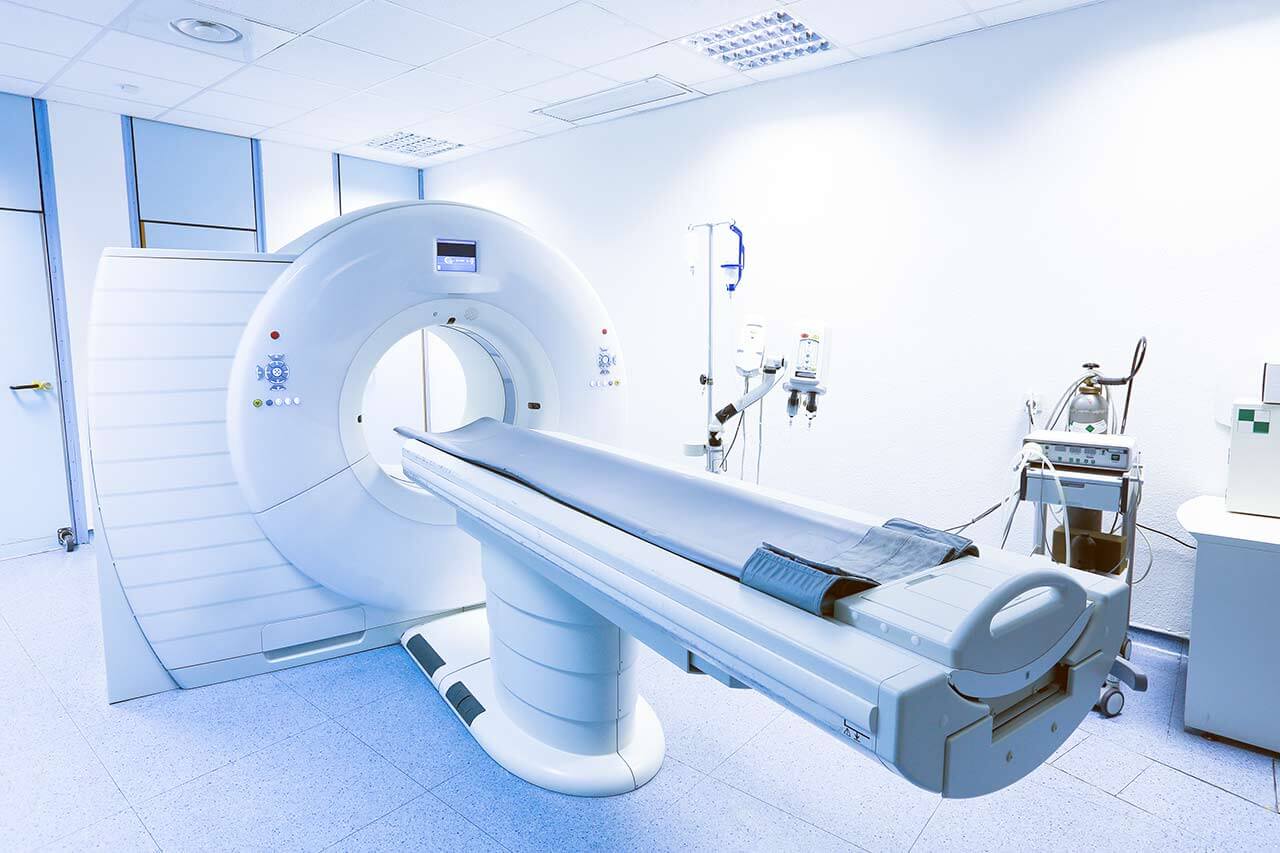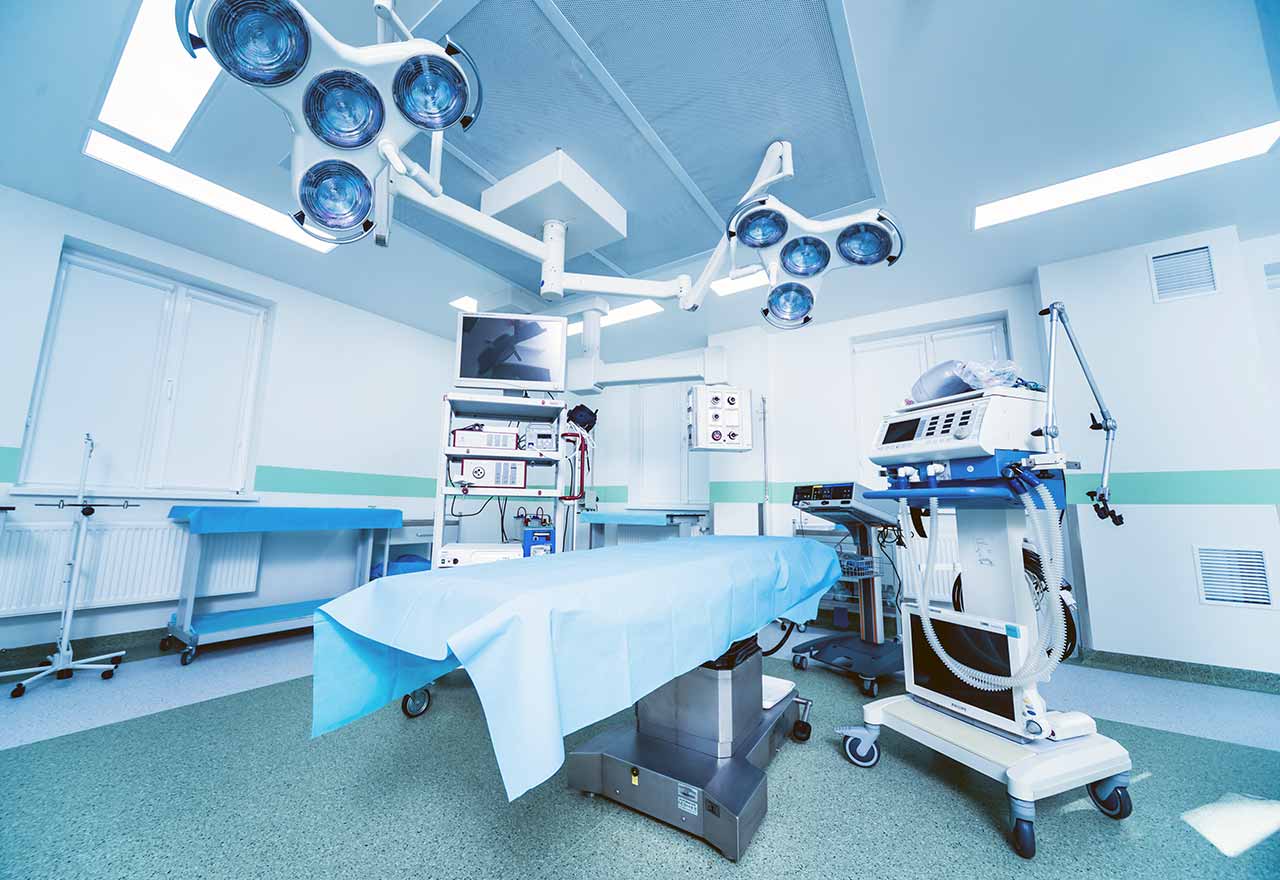
The program includes:
- Initial presentation in the clinic
- clinical history taking
- physical examination
- laboratory tests:
- complete blood count
- biochemical analysis of blood
- Lipid metabolism (HDL/LDL, cholesterol,
triglycerides Lip(a), homocysteine) - blood coagulation analysis (aPTT, PT, INR)
- inflammation indicators (CRP, ESR)
- metabolic status (uric acid, total glucose, HbA1c)
- cardiovascular disease risk markers
- kidney function test (creatinine, urea)
- TSH
- doppler/ duplex receptacles of lower extremities
- angio-MRI from aorta and of lower extremities
- duplex peripheral arteries
- preoperative care
- necrotomy followed by transplantation of skin
- daily wound care
- blood transfusions (if needed)
- symptomatic treatment
- control examinations
- the cost of essential medicines and materials
- nursing services
- full hospital accommodation
- developing of further guidance
Required documents
- Medical records
- Doppler ultrasound/duplex scanning (if available)
- Angiogram (if available)
Service
You may also book:
 BookingHealth Price from:
BookingHealth Price from:
About the department
The Department of Vascular Surgery at the HELIOS Clinic Krefeld offers the full range of services in this medical focus. The main specialization of the department is the diagnosis and treatment of aneurysms, obliterating atherosclerosis of peripheral arteries, stenoses and installation of port systems. The department is headed by Dr. med. Gabor Gäbel.
To provide an accurate diagnosis, the department has advanced diagnostic methods: ultrasound diagnosis, dopplerography, duplex sonography, oscillography, CT angiography, MR angiography, subtraction angiography, etc.
The department provides an effective treatment of aneurysms. Most often, doctors have to deal with abdominal aortic aneurysm. When diagnosing the aneurysm, it is necessary to accurately determine its location, size and degree of protrusion. To do this, the department uses state-of-the-art ultrasound equipment. In the detection of a small aneurysm, specialists monitor the progression of the pathology. In many cases, to prevent aneurysm growth, it is enough to lead an appropriate lifestyle. The main risk factors include high blood pressure and smoking. If the aneurysm size reaches more than 5 centimeters, the patient needs surgical intervention, since there is a risk of vessel wall rupture, which can lead to irreversible consequences.
The department performs all modern operations to treat aneurysms: stenting (minimally invasive intervention) and open surgeries. In addition, doctors specialize in complex endovascular operations (performed in a specially equipped hybrid operating room), including the removal of aneurysm and thoracic aortic dissection, including the aortic arch, surgical treatment of the entire thoracic and abdominal aorta (thoracoabdominal aneurysms)with the use of individually manufactured stents.
A separate focus of the department is the treatment of obliterating atherosclerosis of peripheral arteries, which affects not only the arteries of the upper and lower extremities, but also arteries that supply blood to the intestine or other internal organs. All modern therapeutic methods for the treatment of this disease are available in the department:
- Conservative treatment (drug therapy), which is recommended in the early stages of the disease and covers the intake of drugs that improve blood circulation, elimination of risk factors and training walking
- Expansion of vessels with catheters and stents
- Open surgical interventions (for example, endarterectomy)
- Hybrid interventions (combination of open surgery with catheter placement)
To ensure a safe access to veins, for example, during a long-term chemotherapy or infusion therapy, there is performed implantation of port-systems. The procedure is performed on an outpatient basis under local anesthesia.
The department’s range of services is complemented by the treatment of stenosis. Therapeutic options include medical treatment with aspirin, use of medications to reduce blood lipids and regular ultrasound to monitor therapy results. In more severe cases, there is required surgical treatment, such as endarterectomy or stenting.
Curriculum vitae
- 1997 - 2004 Study of Medicine at the Semmelweis University in Budapest and at the Medical Faculty of the University of Leipzig.
- 2004 Medical license.
- 2004 - 2005 Assistant Physician and Research Fellow at the Institute of Laboratory Medicine, Clinical Chemistry and Molecular Diagnostics, University Hospital Leipzig (Head: Prof. Dr. med. J. Thiery).
- 2005 Defense of doctoral thesis, Medical Faculty of Leipzig University, note: summa cum laude.
- 2005 - 2012 Further Training for Medical Specialist, Department of Abdominal, Thoracic and Vascular Surgery, University Hospital Carl Gustav Carus Dresden (Head: Prof. Dr. med. H. D. Saeger).
- 2010 Medical Specialist in Surgery.
- 2013 Main specialization: vascular surgery.
- 2012 - 2017 Senior Physician of the Section for Vascular Surgery of the Department of General, Abdominal, Vascular and Transplantation Surgery, University Hospital Munich (Head: Prof. Dr. med. J. Werner).
- Since 2017 Chief Physician of the Department of Vascular Surgery at the HELIOS Clinic Krefeld.
Photo of the doctor: (c) Helios Klinikum Krefeld
About hospital
Founded in 2014, the HELIOS Clinic Krefeld is one of the most modern medical facilities in Germany today. A team of highly qualified specialists, innovative medical equipment and comfortable accommodation conditions – the clinic has everything to make the treatment run smoothly and efficiently. Having crossed the threshold of the clinic, you will feel the home-like cozy and modern atmosphere. Perhaps you will even forget that you are in the clinic.
As a maximum care medical center, the clinic covers practically all areas of medicine: cardiology, gastroenterology, oncology and hepatology, nephrology, diabetology and rheumatology, general, abdominal and minimally invasive surgery, dermatology and venereology, angiology, cardiac surgery and other medical fields.
Thanks to a continuous fruitful cooperation with the world’s leading universities, research and medical centers, the clinic provides the highest treatment standards.
The doctors of the clinic take up the treatment of the most severe cases, including serious spinal injuries and diseases related to the disorders of the central nervous system. The nursing staff of the clinic regularly undergoes both advanced and special trainings, which contributes to a high-quality, professional patient care at all stages of treatment.
The clinic adheres to a strict quality management system. Not only the patient care, but also the entire treatment process (including monitoring and patient care after the operation) are subject to the quality certification.
Photo: (c) depositphotos
Accommodation in hospital
Patients rooms
The patients of the HELIOS Clinic Krefeld live in comfortable single and double rooms. Each room has a bathroom with a toilet and shower. The room is furnished with a comfortable bed, bedside table, TV, radio and telephone. Each room has access to the Internet, which can be used at extra charge.
The clinic offers an excellent infrastructure: a beautiful park with playgrounds for children, a cafeteria, a chapel, which regularly hosts church services, a prayer room for Muslims, a beauty salon, a shop with a large selection of magazines, drinks and personal hygiene items, an ATM and a large parking lot.
Meals and Menus
The restaurant of the clinic offers three meals a day. For breakfast, lunch and dinner, it serves a large selection of dishes that will please even spoiled gourmets. Every day, the menu features vegetarian and dietary dishes. It is possible to order any dish without leaving the room. In addition, the clinic has a cafeteria where one can always have a cup of aromatic coffee, hot tea or enjoy an exquisite refreshing drink. Also, the cafeteria menu offers many tasty snacks and dishes.
Further details
Standard rooms include:




